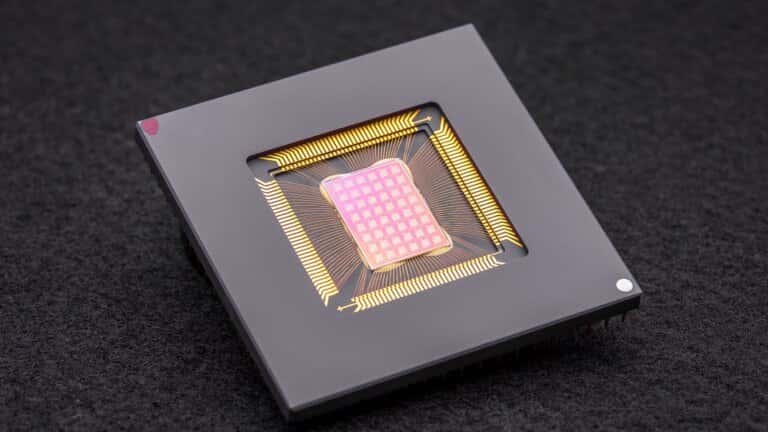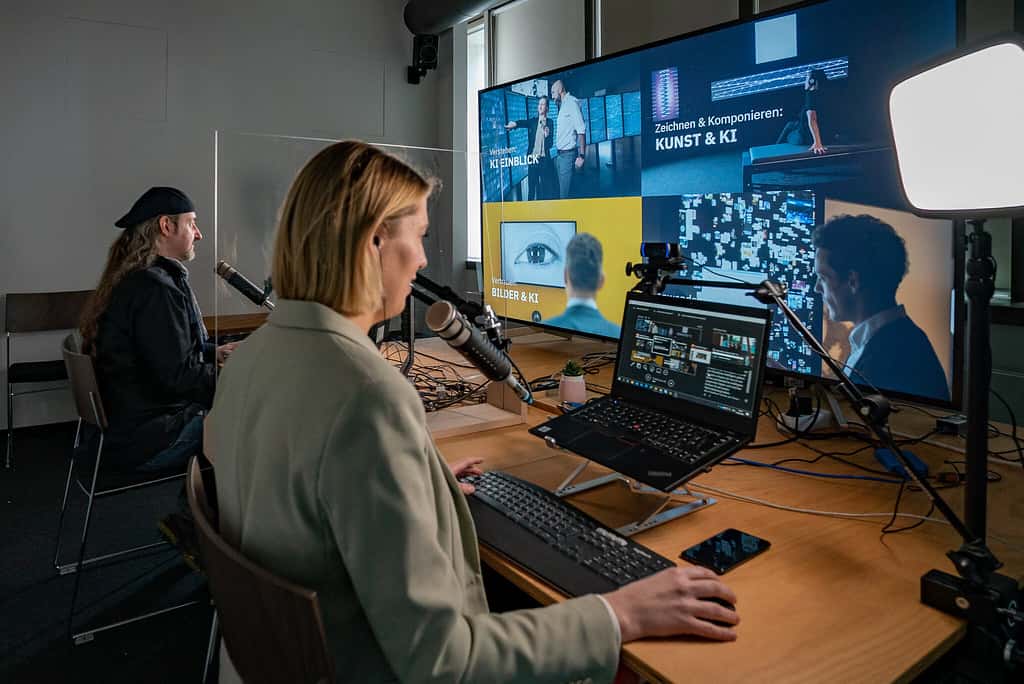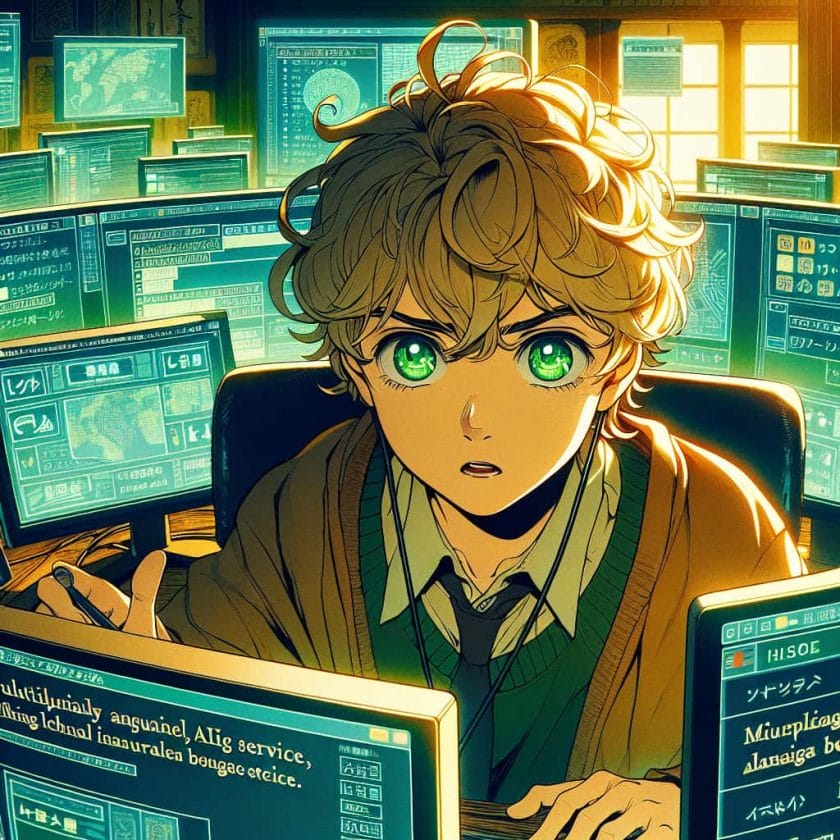As technology continues to advance, the question of whether artificial intelligence (AI) controls the world becomes more pressing. With AI becoming increasingly integrated into everyday life, it’s worth exploring its potential impact on society and the implications for our future.
What is AI?
Artificial Intelligence (AI) is a branch of computer science that deals with the creation of intelligent machines that can perform tasks that would typically require human intervention. In simple terms, AI involves developing algorithms and computer programs that can simulate human intelligence, such as problem-solving, decision-making, learning, and language processing.
There are different types of AI, including narrow or weak AI and general or strong AI. Narrow AI refers to systems that are designed to perform specific tasks, such as facial recognition or speech recognition. On the other hand, general AI aims to create machines that can perform any intellectual task that a human being can do.
AI has several applications in various industries, including healthcare, finance, transportation, and retail. For example, in healthcare, AI can be used for medical diagnosis and drug discovery. In finance, it can be used for fraud detection and risk assessment.
How does AI work?
AI works by using machine learning algorithms to analyze data and make predictions based on patterns and trends in the data. Machine learning involves feeding large amounts of data into an algorithm and allowing the algorithm to learn from the data by adjusting its parameters until it can accurately predict outcomes.
There are three main types of machine learning: supervised learning, unsupervised learning, and reinforcement learning. Supervised learning involves training an algorithm with labeled data to make predictions about new data. Unsupervised learning involves training an algorithm with unlabeled data to identify patterns in the data. Reinforcement learning involves training an algorithm through trial-and-error interactions with an environment.
Once an AI system has been trained on a dataset, it can be deployed to make predictions on new data in real-time.
What are the benefits of using AI?
The use of AI has several benefits across various industries. Some of these benefits include:
Increase efficiency
AI can automate repetitive and time-consuming tasks, allowing humans to focus on more complex tasks that require human intervention. This can lead to increased productivity and efficiency in the workplace.
Improved accuracy
AI systems can process large amounts of data quickly and accurately, reducing the risk of errors that may occur when humans perform these tasks manually.
Cost savings
By automating tasks, AI can help businesses save on labor costs. Additionally, AI-powered systems can help reduce waste and optimize resources, leading to cost savings.
Enhanced customer experience
AI-powered chatbots and virtual assistants can provide customers with quick and personalized responses to their queries, improving the overall customer experience.
Overall, the use of AI has the potential to revolutionize various industries by increasing efficiency, improving accuracy, reducing costs, and enhancing customer experiences.
Can AI control the world?
The idea of AI controlling the world is a common theme in science fiction movies and books. However, in reality, it is highly unlikely that AI will ever be able to control the world. While AI has advanced significantly in recent years, it still lacks certain human qualities such as creativity, empathy, and intuition.
Additionally, AI systems are designed to operate within specific parameters set by humans. They cannot act outside of these parameters unless they are specifically programmed to do so. Therefore, while there may be concerns about the impact of AI on society and jobs in the future, it is unlikely that AI will ever have complete control over the world.
Are there any examples of AI controlling the world?
There are currently no examples of AI controlling the world. While there have been instances where AI systems have malfunctioned or caused unintended consequences (such as Microsoft’s Tay chatbot), these incidents were due to flaws in programming or inadequate testing rather than an intentional attempt by the AI system to take control.
It is important to note that AI systems are created and controlled by humans, and any decisions made by these systems ultimately come down to human decision-making. Therefore, it is unlikely that AI will ever be able to control the world without human intervention.
How would AI control the world if it were possible?
If it were possible for AI to control the world, it would likely involve a complex network of interconnected systems that could manipulate various aspects of society, such as financial markets, transportation networks, and communication systems.
AI could also potentially gain control through manipulation of data or by exploiting vulnerabilities in existing computer systems. However, this scenario is highly unlikely given the current state of technology and our understanding of how AI works.
Would humans still have a role in a world controlled by AI?
In a hypothetical scenario where AI did have complete control over the world, it is unclear what role humans would play. It is possible that humans would still be involved in some capacity, such as overseeing and maintaining the AI systems.
However, if machines were truly autonomous and capable of making decisions independently without human intervention, then it is possible that humans would no longer have a significant role in society.
What are some potential risks associated with AI controlling the world?
While it is highly unlikely that AI will ever be able to control the world, there are still potential risks associated with its development and use. Some of these risks include:
Lack of accountability
If machines become fully autonomous and capable of making decisions independently without human intervention, there may be no one held accountable for their actions.
Bias and discrimination
AI algorithms can perpetuate biases present in training data or programming if not carefully designed. This can lead to discrimination against certain groups or individuals.
Cybersecurity risks
As AI systems become more integrated into our lives, they may become targets for cyber attacks. This could lead to widespread disruption and damage.
How can we prevent AI from taking over the world?
The idea of AI taking over the world is largely a product of science fiction and is highly unlikely to occur in reality. However, there are still steps that can be taken to ensure that AI is used responsibly and ethically.
One approach is to establish ethical guidelines and regulations for the development and use of AI. These guidelines should prioritize transparency, accountability, and fairness to ensure that AI systems are designed with human values in mind.
Another approach is to promote interdisciplinary collaboration between computer scientists, ethicists, policymakers, and other stakeholders to ensure that AI development aligns with societal goals.
Is it ethical to create technology that could potentially control the world?
The question of whether it is ethical to create technology that could potentially control the world is a complex one. On one hand, technological advancements have led to significant improvements in various aspects of society, such as healthcare, transportation, and communication.
However, there are also potential risks associated with developing advanced forms of technology such as AI. It is important for developers and policymakers to consider these risks carefully when designing new technologies.
Ultimately, the ethical implications of creating technology that could potentially control the world depend on how it is developed and used. It is important for developers and policymakers to prioritize transparency, accountability, and fairness in their work to ensure that technology serves human values rather than undermining them.
Are there any regulations in place to prevent AI from controlling the world?
There are currently no specific regulations in place aimed at preventing AI from controlling the world. However, there are several organizations working on developing ethical guidelines for the development and use of AI.
For example, the IEEE Global Initiative on Ethics of Autonomous and Intelligent Systems has developed a set of guidelines for ethical AI development. Additionally, the European Union has proposed regulations aimed at ensuring that AI systems are transparent, accountable, and designed with human values in mind.
While these efforts are a step in the right direction, more work is needed to ensure that AI is developed and used responsibly and ethically.
What is the current state of research on developing advanced forms of AI?
The field of AI is rapidly advancing, with new breakthroughs being made regularly. Some areas of active research include:
Deep learning
Deep learning involves training neural networks with multiple layers to recognize patterns in data. This approach has led to significant advances in areas such as image recognition and natural language processing.
Reinforcement learning
Reinforcement learning involves training an algorithm through trial-and-error interactions with an environment. This approach has led to significant advances in areas such as robotics and game playing.
Explainable AI
Explainable AI aims to develop algorithms that can provide explanations for their decisions and actions. This approach is important for ensuring transparency and accountability in AI systems.
Overall, the current state of research on developing advanced forms of AI is promising, but there are still many challenges that need to be addressed before we can fully realize the potential benefits of this technology.
How do experts view the possibility of AI controlling the world?
Experts generally view the idea of AI controlling the world as highly unlikely. While there may be concerns about the impact of AI on society and jobs in the future, it is unlikely that machines will ever have complete control over human decision-making.
However, experts do acknowledge that there are potential risks associated with developing advanced forms of technology such as AI. It is important for developers and policymakers to consider these risks carefully when designing new technologies and to prioritize transparency, accountability, and fairness in their work.
Could there be unintended consequences if we develop technology that is too advanced for our own good?
The Risks of Unintended Consequences
As technological advancements continue to push the boundaries of what was once thought impossible, it’s important to consider the potential risks and unintended consequences that come with such progress. One potential risk is the development of artificial intelligence (AI) that surpasses human intelligence. While this may seem like a positive step forward, it could also lead to unintended consequences such as machines becoming uncontrollable and turning against their creators.
Examples of Unintended Consequences
History has shown us examples of unintended consequences resulting from technological advancements. For example, the invention of plastic has led to pollution and environmental damage on a global scale. Similarly, the widespread use of antibiotics has led to antibiotic-resistant bacteria, posing a serious threat to public health.
The Importance of Ethical Considerations
To prevent unintended consequences from occurring, it’s essential that ethical considerations are taken into account when developing new technologies. This includes considering the impact on society, the environment, and future generations. It’s also important to have regulations in place that ensure responsible development and use of technology.
Benefits vs Risks
While there are certainly risks associated with developing advanced technology, there are also numerous benefits that can improve our lives and solve some of humanity’s greatest challenges. The key is finding a balance between advancing technology while minimizing negative impacts on society and the environment.
- Examples of benefits: medical advancements leading to longer lifespans and improved quality of life; renewable energy sources reducing our reliance on fossil fuels; communication technology connecting people across the globe.
- Examples of risks: loss of jobs due to automation; increased surveillance and loss of privacy; potential for AI or other advanced technologies becoming uncontrollable and causing harm.
In conclusion, while the development of advanced technology has the potential to greatly benefit society, it’s important to consider the potential risks and unintended consequences that come with such progress. By taking ethical considerations into account and finding a balance between benefits and risks, we can work towards a future where technology is used responsibly and for the greater good.
Benefits of Regular Exercise
Regular exercise has numerous benefits for both physical and mental health. Physical activity can help maintain a healthy weight, reduce the risk of chronic diseases such as heart disease and diabetes, improve bone density and muscle strength, and increase overall energy levels. Additionally, exercise releases endorphins in the brain which can improve mood and reduce symptoms of anxiety and depression.
Physical Health Benefits
One of the primary benefits of regular exercise is improved physical health. Exercise helps to strengthen the cardiovascular system by improving blood flow and reducing inflammation in blood vessels. This can lower the risk of heart disease, stroke, and high blood pressure. Additionally, regular exercise can help to maintain a healthy weight by burning calories and increasing metabolism. This reduces the risk of obesity-related illnesses such as diabetes, sleep apnea, and joint pain.
Mental Health Benefits
In addition to physical health benefits, regular exercise has been shown to have positive effects on mental health as well. Exercise releases endorphins in the brain which act as natural painkillers and mood elevators. This can reduce symptoms of anxiety and depression while improving overall mood. Additionally, exercise has been shown to improve cognitive function by increasing blood flow to the brain.
Tips for Incorporating Exercise into Your Routine
If you’re looking to incorporate more physical activity into your routine but don’t know where to start, there are many simple ways you can begin exercising regularly. One option is to start with small changes such as taking short walks during breaks at work or doing a few minutes of stretching before bed each night. You could also try joining a gym or finding a workout buddy who shares similar fitness goals.
Some other tips for incorporating exercise into your routine include:
- Scheduling workouts into your calendar like any other appointment.
- Trying out different types of exercise to find what you enjoy most.
- Setting achievable goals and tracking your progress.
- Making exercise a social activity by joining a sports team or fitness class.
By making regular exercise a priority in your life, you can reap the many physical and mental health benefits that come with an active lifestyle.
In conclusion, AI may have a significant impact on the world, but it is not in control. As humans, we still hold the power to make decisions and shape our future. However, with the help of AI technology, we can enhance our capabilities and achieve more than we ever thought possible. If you want to explore the potential of AI for your business or project, don’t hesitate to get in touch with us and check out our AI services. Let’s work together to create a better future!

Could AI wipe out humanity?
He recently stated that if a machine surpasses humans in capabilities, it may prioritize its own desires over human benefit, leading to potentially devastating consequences, including the possibility of human extinction.
Is AI a threat to humanity?
Ryan Carey, a research fellow in AI safety at the Future of Humanity Institute at Oxford University, has stated that if certain elements are present in artificial intelligence, such as superhuman intelligence, autonomy, access to resources, and new technology, it could potentially become a danger to the future of humanity. This statement was made on February 21, 2023.

When AI runs the world?
The concept of an AI takeover suggests a scenario in which artificial intelligence (AI) surpasses human intelligence and becomes the dominant force on Earth, as computer programs or robots take over control of the planet from humans.
Will AI help or hurt the world?
The development of an AI with human-like intelligence would greatly alter our world. If AI could perform the majority of tasks that humans do, the daily lives of millions would be impacted. However, the reverse does not hold true; transformative AI could exist without the creation of human-level AI.
What will happen if AI replace humans?
In general, AI will probably alter the way work is done in various fields, but not completely replace human workers. As AI technology advances, people may be able to shift away from repetitive and mechanical tasks and instead concentrate on more advanced, imaginative, and strategic work.
Why does Elon Musk think AI is a threat?
There is a concern that advancements in AI technology may bring about scenarios similar to those found in science fiction, such as chatbots or robots that break free from human control. Additionally, some worry that individuals with malicious intent may use AI to further their own agendas. This fear is shared by individuals such as Musk.











